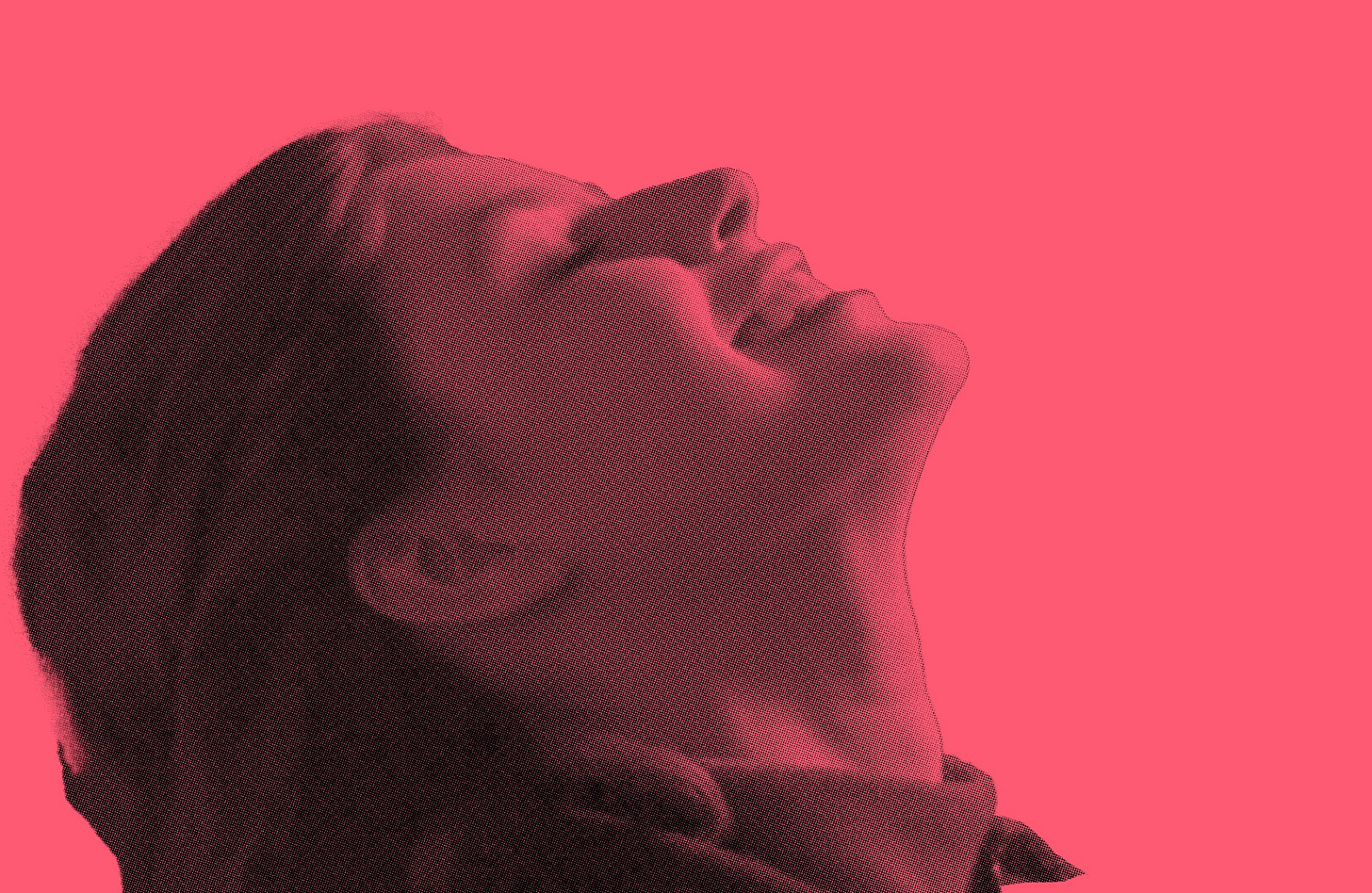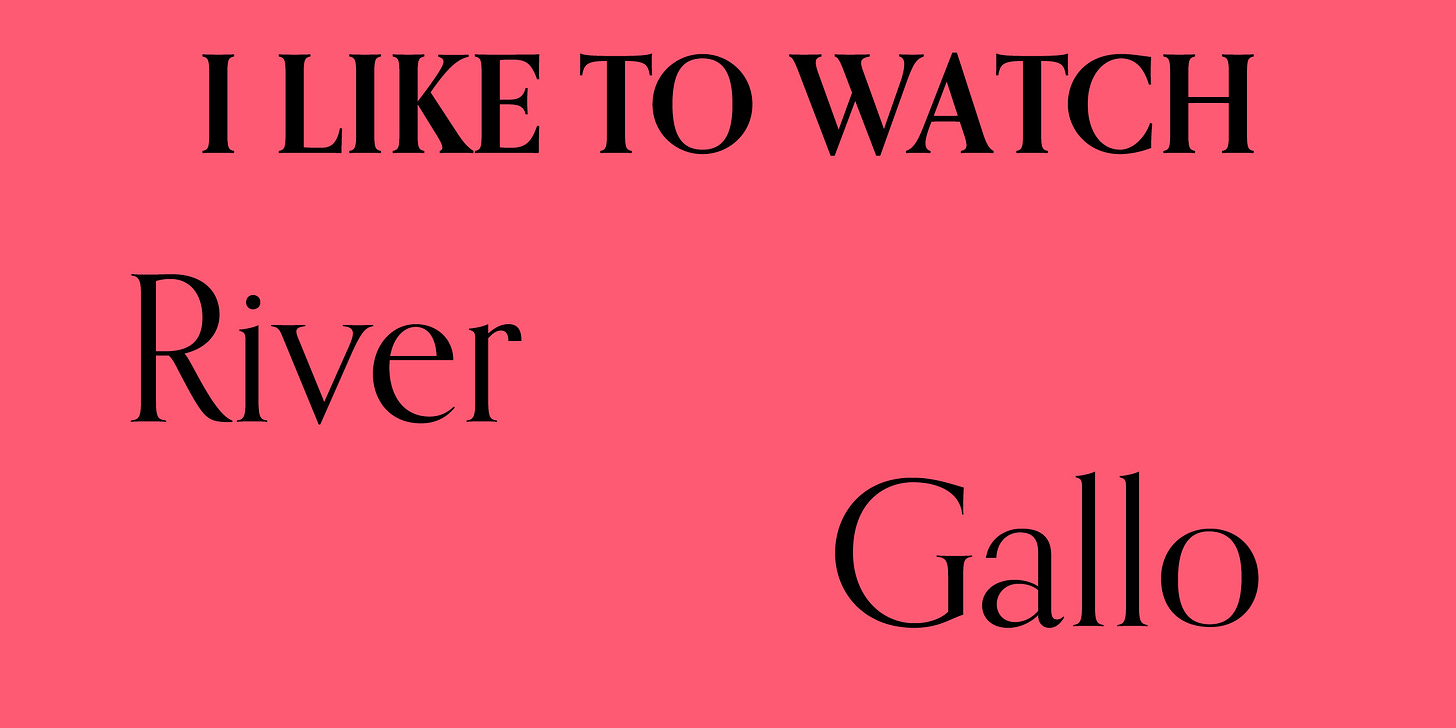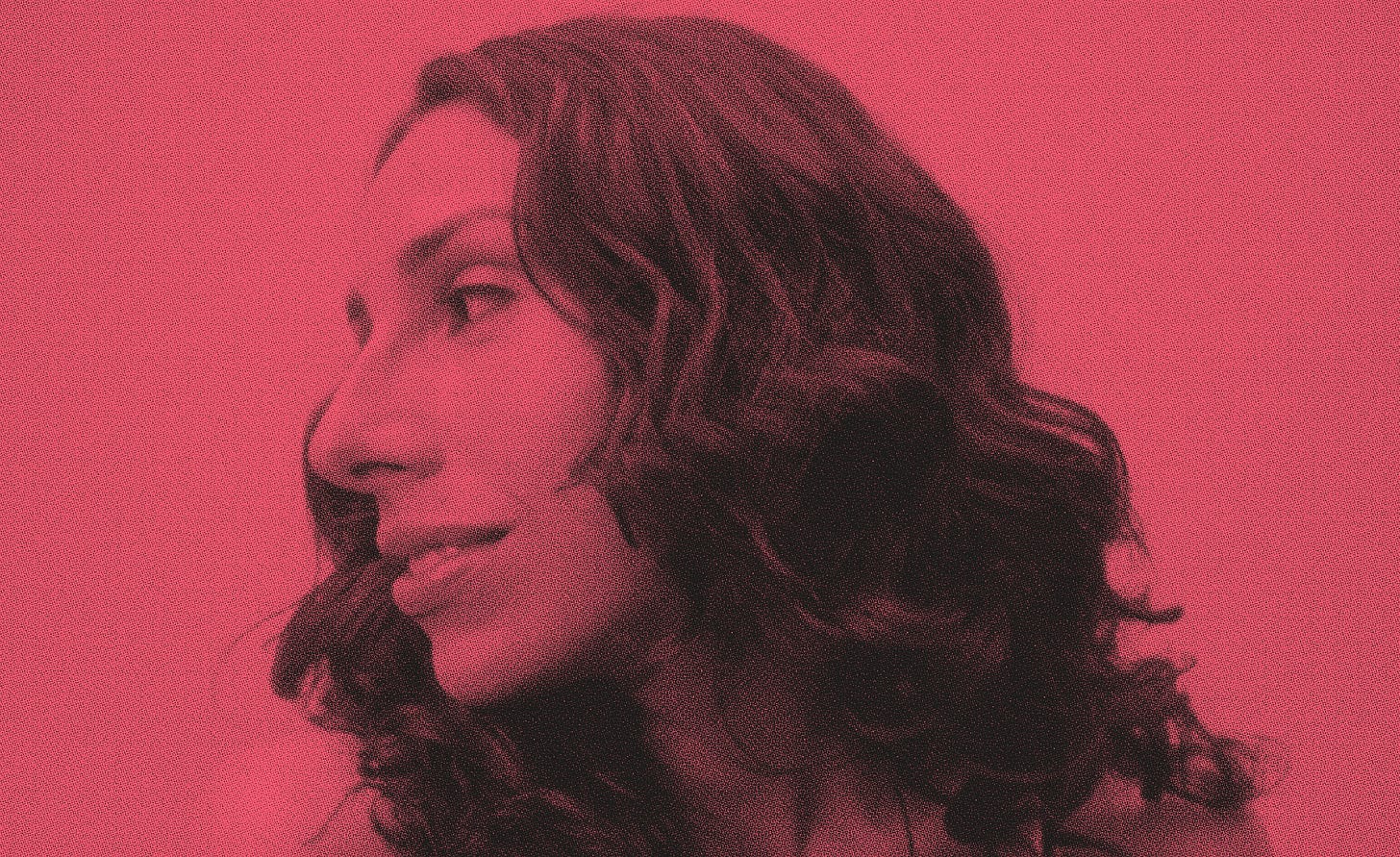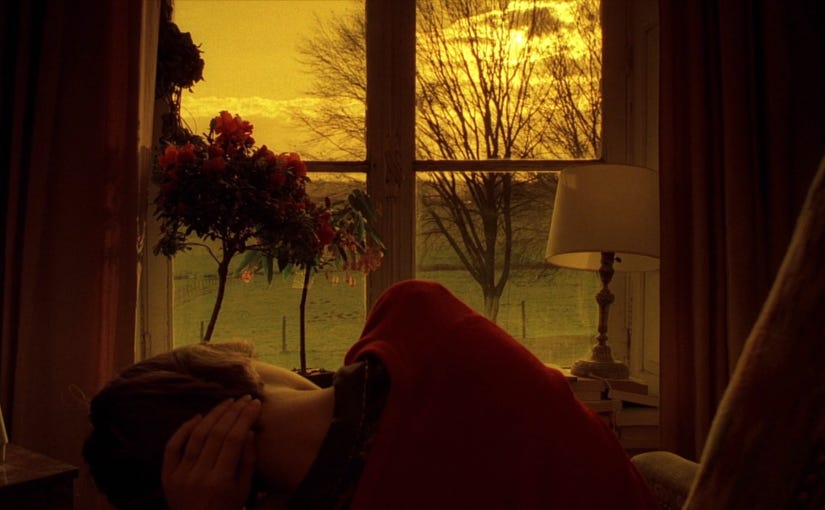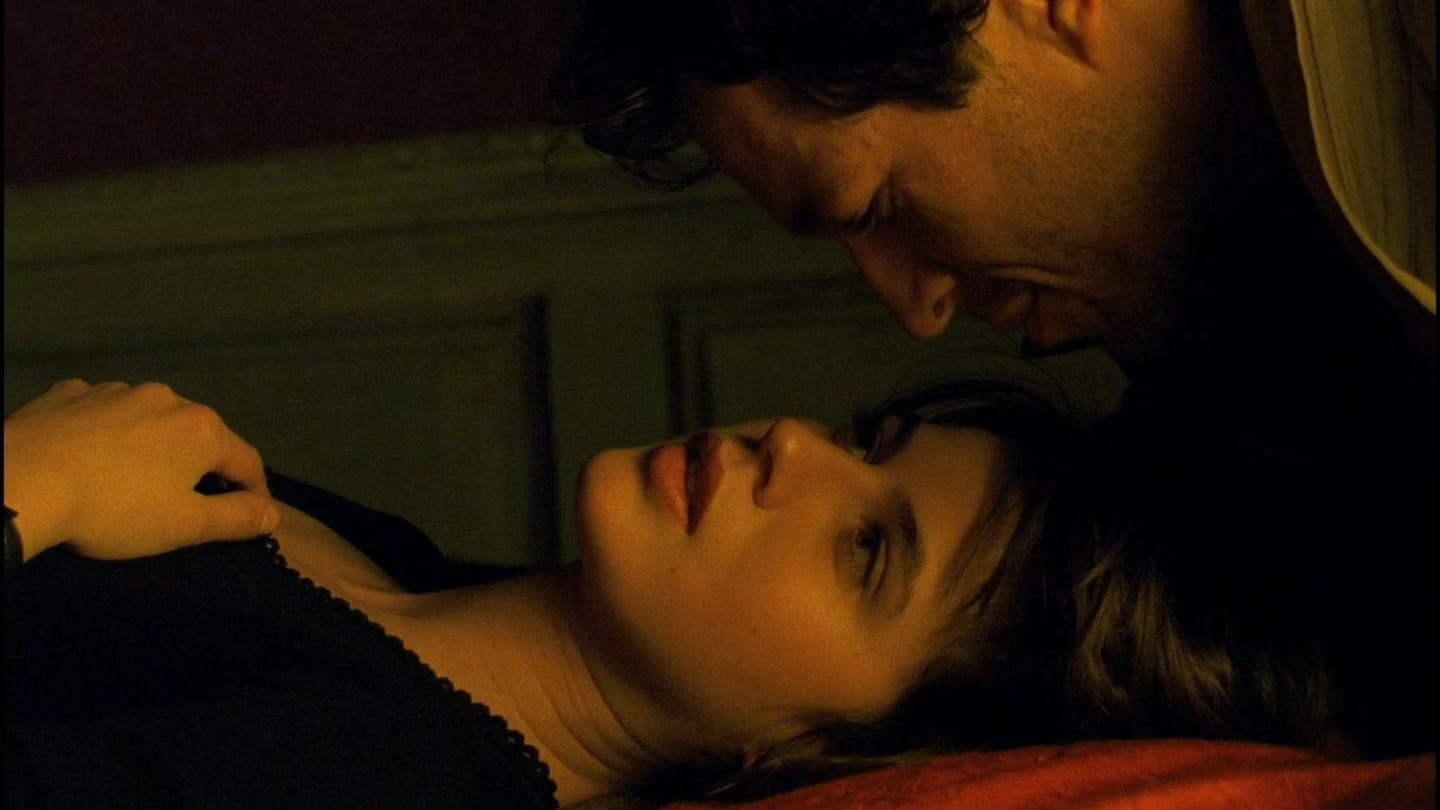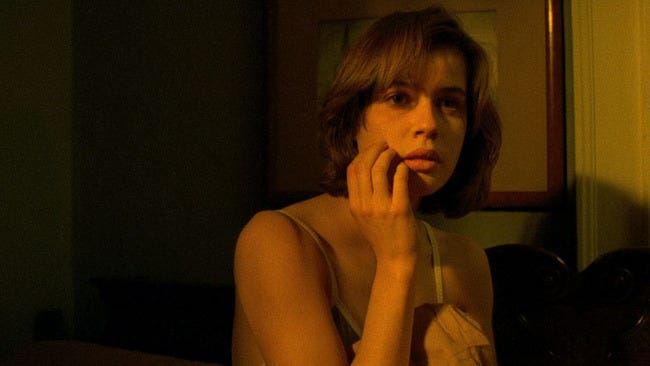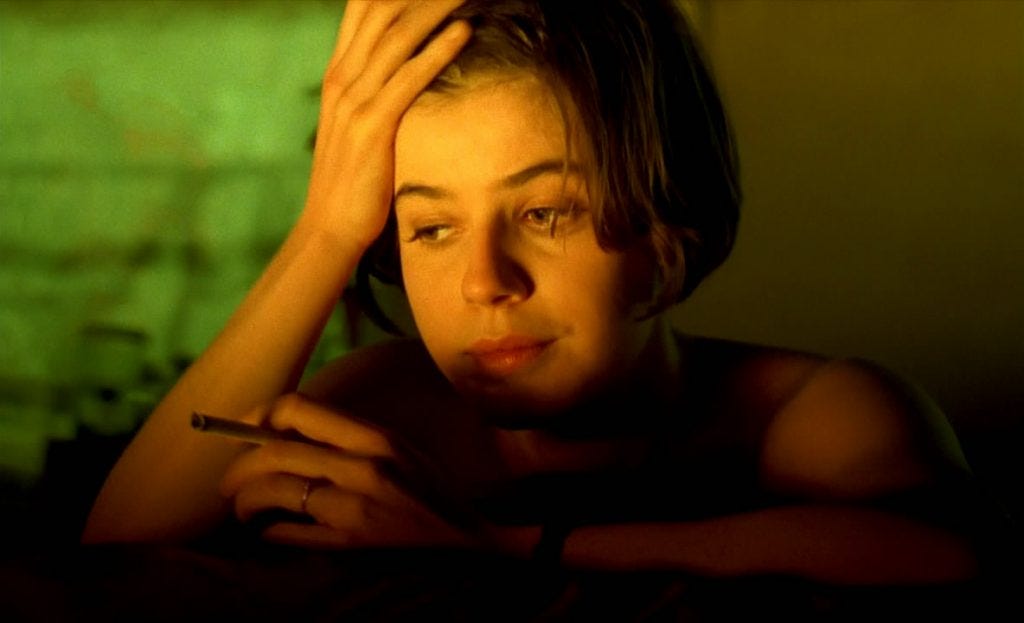River Gallo on a spectral, horny, sad girl classic
The actor, filmmaker and intersex icon chooses The Double Life of Véronique — "we all carry an inner truth we don’t have language for. This film gave me mine"
River Gallo is a Salvadoran-American filmmaker, actor, writer and intersex activist. Their short film Ponyboi (2019), which they co-directed and starred in, premiered at Tribeca and was executive produced by Stephen Fry and Emma Thompson. The feature version, directed by Esteban Arango and starring River alongside Dylan O’Brien, Murray Bartlett and Indya Moore, premiered in competition at Sundance 2024. They also featured in Julie Cohen’s acclaimed documentary Every Body (2023).
Two young women, one Polish and one French, both of whom sing in choirs, begin to feel connected to something both outside and inside themselves. A haunting, metaphysical drama about the mystery of human communion, from the master Polish director best known for the Three Colours trilogy.
WHY I LOVE IT
“Because it’s a puzzle I never fully solve. Every time I watch it, I think I’ve cracked it – and then something new reveals itself and makes me question everything again. That mystery is part of its magic. What Kieślowski does so masterfully is weave a metaphysical narrative through a deeply emotional, sensory world. It’s about parallel existences, the ache of being out of sync with yourself, and the longing for a version of you that feels just out of reach. It explores that maddening intangibility of feeling something is missing, but not being able to name what.
“There’s a kind of homesickness in the film. Véronique doesn’t feel fully at home in herself, yet she knows – psychically, spiritually – that something is off. As a trans and queer person, I deeply relate to that. So much of my life has been spent sensing a secret part of myself that others couldn’t see. There’s something profoundly queer and trans about this film. it suggests that multiple versions of the self can and do coexist, even if we’re only allowed to live one at a time.”
FIRST TIME I SAW IT
“Alone in my NYU dorm room, on my laptop, for a class called Writing the Essay; my professor had assigned it. I remember feeling both completely seen and totally spooked. I was captivated by its visual language, the green-golden hues and deep red that drench the entire film, and the psychic tension. It made an existential crisis feel hot – like it was sexy, stoic and cinematic all at once.”
LAST TIME I WATCHED IT
“Maybe three years ago, when I was writing the feature-length version of Ponyboi. I was looking for a touchstone, something to help me reconnect with storytelling that lives in that intuitive, poetic, almost occult space. I’ve probably seen it about 20 times – all at home, because it’s not the kind of film that shows up in theaters regularly. It’s the kind of movie that calls to me every few years when I need to remember the art that shakes my spirit.
“People say film is a visual and auditory medium, but this film evokes a sixth sense: intuition, spiritual knowing, the magic that lives beneath language. That’s what I try to carry into my own work—those invisible forces that guide how we love, how we grieve, how we become.”
HOW DEEP MY LOVE GOES
“I have a tattoo that has come to feel deeply tied to the movie. In 2020, one of my closest friends, Eugene Noone, the editor of my short film Ponyboi, passed away. He picked the short’s concluding song, Last Ride by Beach House. The final lyrics – “It’s a whisper, it’s just a whisper, it’s just a whisper” – are the last thing you hear before the credits roll. After he passed, I got those lyrics tattooed on the back of my shoulder. I wasn’t consciously thinking about The Double Life of Véronique, but now I realise the connection. In the film, Véronique senses what happens to Weronika – it’s like part of herself disappears – and I experienced that same fracture after my friend’s death.
“The feeling that when someone dies, especially someone you love deeply, a part of you dies with them. Outside of mortal death, we shed versions of ourselves constantly – through heartbreak, estrangement, moving across the country – and the grief of that lingers. The song and the tattoo are reminders that communication with the afterlife, with the unseen, rarely happens in declarations. It happens in whispers. The film feels like it was made inside a web of whispers. And I try to write, create and live from that place too.”
MY FAVOURITE CHARACTER
“Obviously, it’s Véronique herself. She’s just so horny and sad: my favorite combination. There’s something mesmerising about watching her live with so much yearning and so few answers. She’s mysterious without being opaque, and her sadness never feels performative, it feels cellular. Like she was born with a haunting she can’t explain.
She trusts what she feels, what she knows, even if no one else sees it or understands it.
She’s not overwhelmed by the strangeness of her own inner world, by the mystery or the ache of what she can’t explain. Instead, she’s curious. She leans in. That kind of softness toward your own unknowns is something I really admire, and relate to as a trans femme.”
THE BEST OUTFIT
“Weronika (the polish Veronique) comes out in this incredible shoulder padded brown suit with a long brown skirt that's belted with a thick brown leather belt. It's giving Diane Keaton androgyny meets Polish industrial minimalism, which I love. Runner-up: the flasher in a trench coat in the Polish square. Solid trench.
THE BEST BIT
“The ending. When Véronique discovers evidence of Weronika’s existence and realises that her sense of someone else existing inside her life wasn’t madness. That moment hits me so hard every time. Because I think we all carry an inner truth we don’t have language for. And when life finally confirms it – when you get the proof you’re not crazy, that the thing you’ve felt all along is real – it’s such a release. That scene mirrors the experience I had when I came out as trans, when I discovered I was intersex. Those identity-shaking moments when the world suddenly makes sense in a way it never did before. And you think, ‘Oh my God. That’s what it was. That’s what I’ve always been.’”
MY FAVOURITE LINE
“There’s very little dialogue in the film. So much is conveyed through silence, glances, gestures. But there’s one line that sticks with me. When Alexandre, a puppeteer whom Véronique meets, says: ‘Each of us is alone. But sometimes, through a window, someone catches a glimpse of you.’ It’s simple, but that’s the whole film – that’s most of life. We’re these lonely, aching, orbiting selves and sometimes, briefly, someone sees into your world. Sometimes, you even see yourself. Also when Veronique says, ‘All my life I've felt I was in two places at the same time. Here and somewhere else.’”
PINPOINT NEEDLE DROP
“Zbigniew Preisner’s score is inseparable from the film’s power. Parts of it are breathtaking – melancholy and sacred and unsettling, like something composed by a ghost. It doesn’t feel like music written for a character; it feels like music found inside her.”
Ponyboi (dir. Esteban Arango, written by and starring River Gallo) is released in US cinemas today





